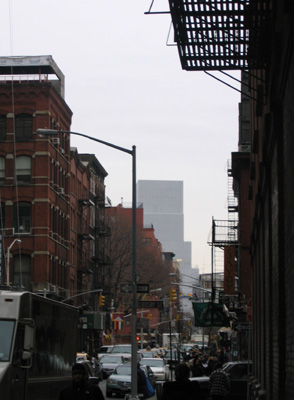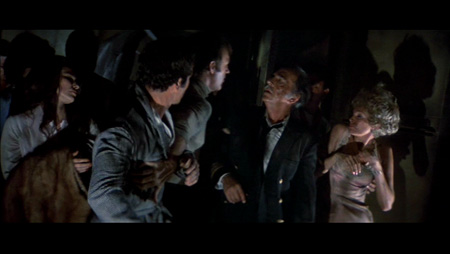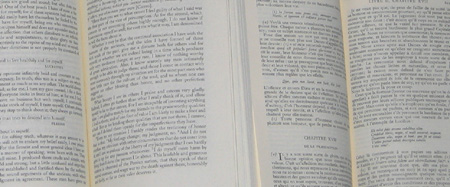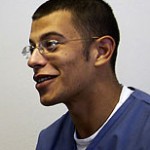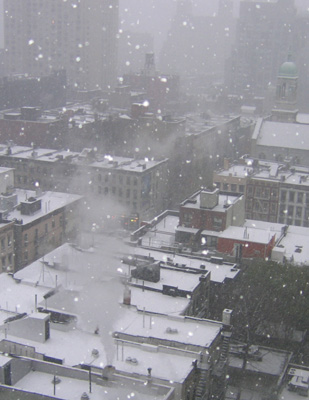
To look at this new luxury building from our apartment, you wouldn’t think that any windows had been installed. One has an awful fear that it will open its doors just in time for the next big Crash.
It was almost disconcertingly quiet here today. Sonja came in the morning, to “do” the rooms as she does every two weeks — only, this time, I’d put her off for a third week, so that she wouldn’t be cleaning up (last Monday) at the same time as I (from the trip). Doormen and a few phone calls aside, that was the extent of my interpersonal contact for the day. There was no mail. I felt quite disregarded.
I considered not taking a walk. There was the Book Review to attack, and I’d lost the morning to that immense sedimentary layer of Timeses. Up at four-thirty, I read newspapers from about seven until ten-thirty. “Read” is overstating things; “glancing” was more like it; but still. What an acreage of horrid newsprint. All for two or three clippings. After a sandwich at about one, and Sonja’s departure, I decided that I must have a walk after all.
The walk has settled on the same route; eventually I shall become another Kant and folks will be setting their watches by me. (Highly unlikely, actually.) I walk around the building to 87th Street — some day I’ll tell you why, unless of course I forget — and down to Carl Schurz Park. There is a loo station by the entrance there and if need presses I stop. Doors close at four sharp, though, so late afternoon walks (in winter) are out of the question. (I always stop on the return.) I amble toward the flagstaff, which is, roughly, where 88th Street would intersect with Finley Walk if it plowed through the Park. I turn right and walk down to the end, at 81st Street. Then back the way I came.
It is, oddly, not boring to follow the same route every day. Of course I am always listening to something. Not music – that would be repetitious. But audiobooks. I am just past halfway through Dion Graham’s recording of Dave Eggers’s What Is the What. It is both ghastly and superb; I long to be done with it but I wouldn’t think of moving on to something else. But perplexity impends. Who is telling me this story? Dave Eggers, who wrote the book, or Valentino Achak Deng, whose story it is — with regard to which Eggers is the most astonishing ventriloquist? Or is it Dion Graham, master of vocal impersonations?
I bought the audiobook when I came home from the hospital and understood that I would be taking walks every day. I had had the book book ever since it came out, very much at the bottom of the pile (but because it’s large). When, I asked myself in moments of candor, am I going to read a novel about one of the Lost Boys of Sudan? All that desert & privation! (And who knew that Africa isn’t the worst; Achak’s experiences in Atlanta – supposed to be the scene of a happy ending – are far knottier.) I couldn’t sit in a chair and read my way through such horrors. Much better to listen, while walking. And so it has gone, for weeks now it seems.
When I get home, I look things up, to see the spellings. “Marial Bai.” “Achor Achor.” “Murahaleen.”Â
It was not so cold today, and very windy, in an autumnal way that seemed intent upon ridding the trees of their dead leaves at last. Everyone remarks on the strangeness of trees full of (dessicated) leaves. Thanks perhaps to the wind, it finally smelled like Fall. Yesterday, of course, it smelled, when it smelled at all, like Winter. But the weather in New York is more neurotic than any of the city’s inhabitants.
It wasn’t all newspapers. There was, amazingly, The Abstinence Teacher. More about that anon.




